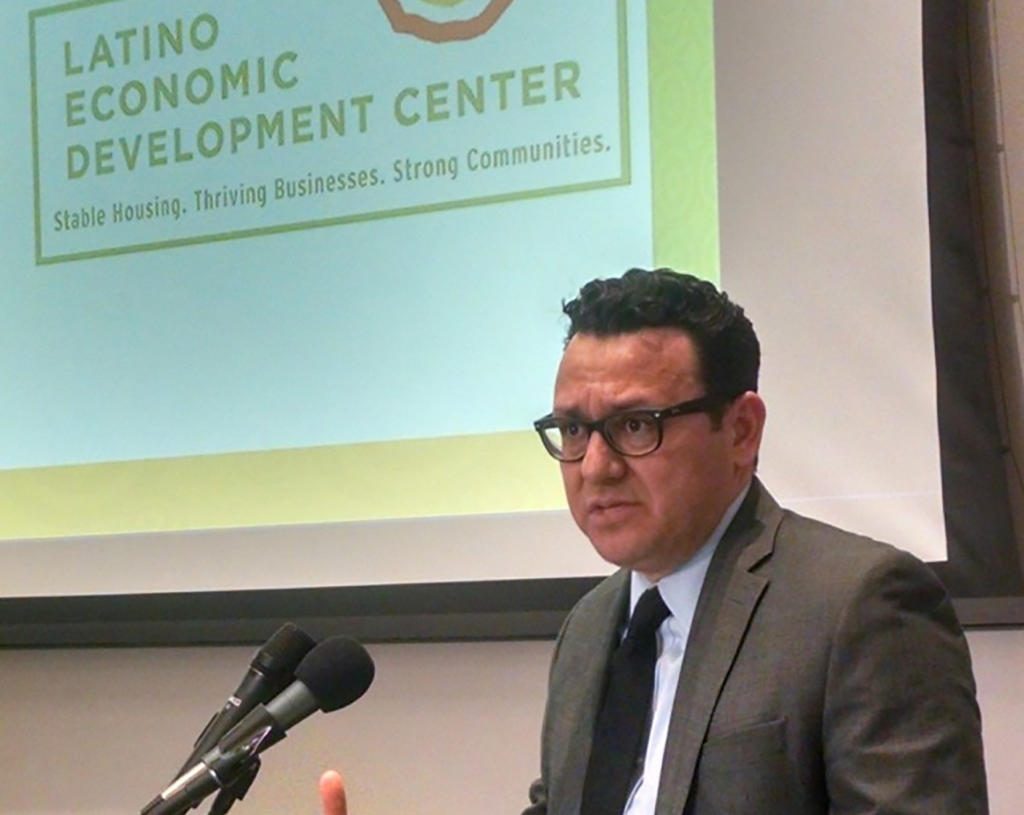This column sponsored by BizLaunch, a division of Arlington Economic Development.
By Tara Palacios and Amanda Gant
When is the best time to seek financing for your business? Small business owners tell us they don’t need financing… until they need it. Based on our experience, the best time for a new business or a startup to acquire financing is when you don’t need it.
Why is this? Typically, a financial institution will want to know your business can pay back a loan. As a business owner, you will want to be in the best position financially to afford to take the risk. Underwriters will also want to know that you are personally invested (some cash on hand) in the endeavor, understand what you will use the proceeds for and have background and experience in your industry.
Speaking on the topic of small business and financing, we are excited to announce BizLaunch and the Latino Economic Development Center (LEDC) will be offering personalized one-on-one appointment opportunities for entrepreneurs who are interested in acquiring financing on Wednesdays from 9 a.m.-4 p.m. beginning Wednesday, February 7. If you have questions about financing any aspect of your business feel free to set up an appointment by calling us at (703)228-0808.
Below are our 5 top things to know when seeking financing for your small business:
- Make sure your business is registered
For your loan to be a business loan (instead of a personal loan) your business will need to be registered. The business loan will start or continue to build your business’s credit. For this purpose, if your business isn’t already registered, now is the time to do so, and BizLaunch can help with this, too.
- Gather the right documents
Documents are the building block of a loan application, so having your documents ready will help speed along the loan process. Documents often required for a small business loan are:
- 3-6 months of bank statements
- Taxes from the previous two years
- Business plan for startups
- Business registration and licenses
- Business lease (if applicable)
- Business financial statements
- Create a strong business plan
Many financial institutions will require a business that has been operating less than two years to provide a business plan. Your business plan will need to communicate basic ideas about how you are running or plan to run your business. When a plan is submitted, your lending officer will follow up with any points that need clarification or additional information that may be needed.
- Devise a plan for collateral
Most small business loans require collateral that is valued at 50-100% of the loan value. The most popular items for collateral are cars (i.e., with no liens). Business assets are also popular to use for collateral. Make a list of items that you could potentially use as collateral (make a list of the items, and explain how much each item is worth, making reference to a webpage showing the actual cost(s) of the object(s). Some banks can put liens on your primary home or investment properties if you have built up equity. However, keep in mind that due to the increased time and cost associated with using real property as collateral, you should only consider this if your business loan is for $50,000 or above.
- Check your credit
There are many websites that will allow you to check your credit score for free. Knowing your credit score, and the credit score of your co-signers, will help you be able to tell what interest rate you can expect from a loan. You can also proactively take care of any mistakes or blemishes on your credit report. Traditional banks usually require a 680 or above, while a credit union or CDFI may be more flexible. For instance, with LEDC there is no credit score cut-off to qualify for a loan. This blog post offers many options to check your credit report for free.
Stay tuned! Sign up here to stay up to date on the programming that BizLaunch and LEDC offers. We will be offering more specialized financial programming and credit resources to our small businesses in Arlington, Virginia.
Please leave a comment below: What do you think? Do you have any additional questions? Have you successfully applied for a small business loan? What were the lessons you wish you knew ahead of time? Do you have any tips for entrepreneurs seeking their first business loan?




